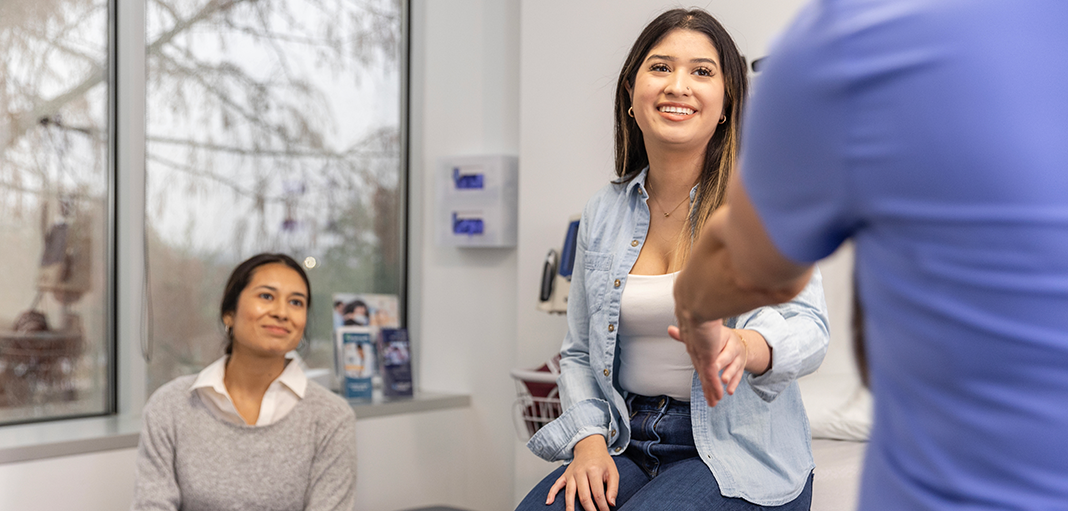Enroll with us in a few easy steps
At some point, your child will go from their pediatric cystic fibrosis (CF) team to one that cares for adults. This usually happens between 18 to 21-25 years of age. It’s an important milestone. But it shouldn’t be sudden. For a smooth transition, plan and practice early.
Use tools and guidelines to help you understand what children can manage at certain ages. They’re available from Cystic Fibrosis Responsibility Independence Self-care Education (CFR.I.S.E.) and the Cystic Fibrosis Foundation (CFF). What happens at each step of your teen’s transition to adult care? It varies. But your child should gradually take over more of their own care. They can be actively involved in their own treatment and transition plans.
Young children depend on you to manage all of their care. You schedule and go to their clinic appointments. You make sure they have refills and take their medications. You make sure they do their breathing treatments. In fact, you’re the one who makes sure your child stays as healthy as possible.
By late elementary or middle school, your child will still look to you for direction. But they’ll start to take over some self-care under your watch. You teach them more about their disease and why they need to take their therapies.
By high school, you and your teen become more like partners. You guide them, but they begin to “own” more of their care. They turn to you when they have questions. Once they’re young adults, they’re ready to manage their own care. They seek support from you only when needed.
Here’s more to keep in mind:
- Transition to an adult care team experienced in both CF and how to prevent and manage CF complications in adults.
- Make sure the pediatric and adult care teams are communicating. This includes before, during and after the transition. Make sure the adult team knows your child’s specific needs, medical history and treatment plans.
- Transfer all medical records to the adult care team.
- Connect your teen to peer support from groups like CFF.
Key pieces of successful transition1.
Give young adults the skills they need to manage their CF on their own.
- Make sure they know why it’s important to get regular health check-ups. Talk with them about why to take their treatments and watch for any symptoms.
- Encourage a healthy lifestyle. This includes healthy eating, regular exercise and avoiding harmful behaviors.
Disclaimers
1. PloS One. Helping patients help themselves: A systematic review of self-management support strategies in primary health care practice. Published August 2019. Accessed April 21, 2025. https://pmc.ncbi.nlm.nih.gov/articles/PMC6675068/
This information is not a substitute for medical advice or treatment. Talk to your doctor or health care provider about your medical condition and prior to starting any new treatment. CVS Specialty assumes no liability whatsoever for the information provided or for any diagnosis or treatment made as a result, nor is it responsible for the reliability of the content.
CVS Specialty does not operate all the websites/organizations listed here, nor is it responsible for the availability or reliability of their content. These listings do not imply or constitute an endorsement, sponsorship or recommendation by CVS Specialty.

